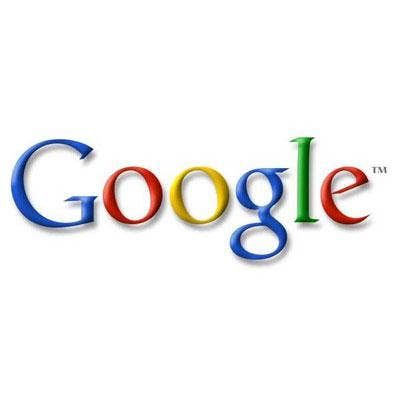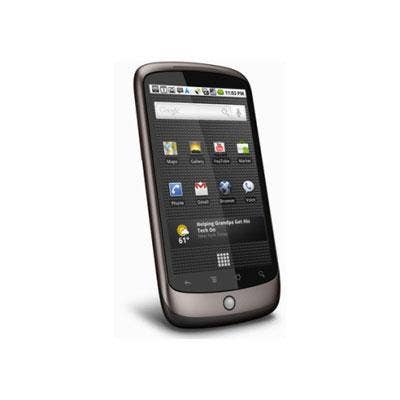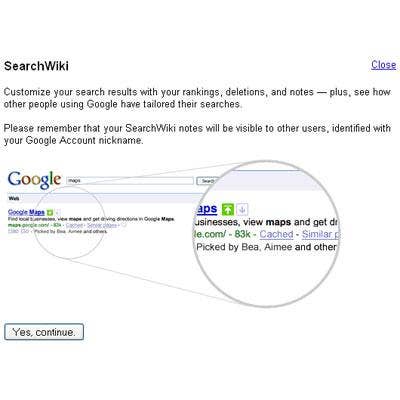Mighty Androids, Crashing Waves: 10 Google Experiments Considered

Cheers and Jeers
Eric Schmidt said it himself: "We celebrate our failures." Speaking at the Techonomy conference last week, Schmidt according to reports made the comments in reference to Google Wave, whose development had just been halted. But Schmidt might have been talking to what is more and more often the Google product development ethos: throw lots and lots and lots of ideas against the wall, see if any stick, and from those sticky ones hit a lot of singles, a few doubles, an occasional triple, and once in a while -- as in the case with Android, Google's white-hot mobile OS -- crack an undeniable home run.
Given Wave's demise, here's a look at notable triumphs, failures and too-early-to-be-determineds from Google's recent years. Given their range -- and frequency -- it's hard to argue there's a more experimental tech titan in the world right now.

Android
The accolades keep pouring in for Android, now in version 2.2 of its release and seen on some of the hottest and most buzzed-about smartphones in the world. It started modestly enough a few years ago, but the open source Android quickly became a favorite of developers, and then earned fans in a number of different smartphone manufacturers, most notably Motorola, which swore loyalty to the Android platform in 2009, and HTC, which has had a string of Android hits at this point.
Add to that the interest by manufacturers to stick Android on other types of mobile devices both consumer-geared (the Barnes & Noble Nook e-reader for example), and enterprise-targeted (Cisco's forthcoming Cius tablet sticks out), and not hard to understand Android's volcanic growth. Several researchers see Android overtaking Apple in the OS smartphone market share battle in the coming years, not to mention Research In Motion's BlackBerry, phones running Microsoft's Windows Mobile, and all other comers. Android invasion, indeed.
Verdict: Grand Slam

Voice
Does it command the type of gushing consumer excitement that greets Skype on a daily basis? No, not so much. But the universal phone number technology Google acquired through GrandCentral definitely bolstered Google's efforts as a communication player, and any future Google collaboration or social networking endeavors involving communication applications will no doubt involve Voice. Google in June 2010 finally opened Google Voice to everyone in the U.S., meaning an invitation to try the service is no longer required.
Voice is one to keep an eye on, especially given Skype's just-announced IPO plans and the growth of Google as a communications powerhouse.
Verdict: Triple

Talk
Introduced in August 2005, Google's free Talk application -- ostensibly an instant messaging competitor and now more interesting given its use in mobile platforms like BlackBerry, iPhone and Android -- has been a qualified "plus." It's hard to say just how quickly Google is making gains with Talk as a comprehensive text, voice and video offering, but as Google continues to broaden its reach for a comprehensive collaboration and social networking suite, it's tough to imagine Talk won't be a centerpiece application.
Verdict: Double

Wave
Wave, you coulda been a contender. A majorly hyped released from Google in May of 2009, Google promised that Wave would take users beyond pedestrian instant messaging, e-mail and other functions. Earlier this month, however, Google admitted that Wave "has not seen the user adoption we would have liked" and it would halt development of Wave as a standalone product. A few loyal fans, it seems, couldn't turn Wave into a big kahuna.
Verdict: Called third strike

Nexus One
We won't call Nexus One a strikeout just yet; the phone itself can hang with some of the best available Android-based smartphones out there, and it was after all the first phone to get the Android 2.2 Froyo update. But in January, Google had big dreams for a Web retail outlet which would exclusively manage sales for Nexus One and usher in a new era of smartphone-to-consumer ease. It didn't happen; Nexus One sales were sluggish, Google was pounded from all sides by a variety of customer service issues, and Google finally admitted that it would end Nexus One sales through the Web store and table the phone while it examines whether taking it through other distribution channels is worthwhile. Doesn't mean Nexus One won't succeed -- or won't be a hit down the road -- just means that for the moment, it's a big fat whiff.
Verdict: Swing and a miss

Buzz
The idea of Buzz is a strong one; Google needs to answer Twitter, Facebook and other social networking strongholds with a very Google-style offering. But when it was released in February, Buzz got raked over the coals by privacy advocates that saw serious security issues with the way Buzz imports contacts, manages photos and user content, and pinpoints a user's location. It doesn't seem to have seen too much favorable adoption, and will likely wind up -- barring a major, tide-turning upgrade for the better from Google -- as part of a future social networking suite (Google Me?) from Google.
Verdict: Two strikes

Orkut
What, you've never heard of Orkut? It was Google's social networking offering -- one of them anyway -- really before the idea that Google needed to be a social networking powerhouse took hold in the mainstream. It's hardly a failure -- Orkut is popular in other countries of the world, especially Brazil and India -- and it's more than six years old. It's not really bringing runners around the bases, but it's a decent reference point for those who question, or defend, Google's social networking chops, especially as rumors about Google's "Google Me" social networking suite heat up.
Verdict: Double

SearchWiki
Google's SearchWiki tool had an appreciable idea: let users customize their search results so that when they searched for something online, the service would automatically eliminate some results and move others to the top of the list based upon a user's parameters. During the day of its announcement in November 2008, Google Product Manager Cedric Dupont described SearchWiki as "a way to adapt to a more interactive experience." Credit Google for making sure its bread and butter search platform doesn't grow old and crusty -- it could always use new features -- but SearchWiki had a fatal flaw: it changed the basic Google search experience and crowded or cluttered the search result pages. Result? Crossed off Google's list in March 2010.
Verdict: Caught stealing

RadioAds And Print Ads
Neither seemed like a bad idea; innovative advertising platforms as part of its search platform were what helped Google ascend to tech titan status, after all. But neither Print Ads (nixed in January 2009) nor RadioAds (sayonara'd a month later) could produce for Google. Print Ads, which launched in November 2006, was a tool for placing advertisements in periodicals. RadioAds, which held even more promise, was a radio-based ad platform Google developed after its acquisition of dMarc Broadcasting, through which it wanted to offer a performance-based ad experience on radio similar to the way it did with its search engine. Alas...
Verdict: Back to back strikeouts

Editions
With the e-reader market hot and getting hotter, credit Google for creating an air of mystery around Google Editions, its forthcoming e-book marketplace. Last we heard, it was set for a July release, but that didn't happen, so some observers are wondering how far out -- or how ready -- Editions is. Either way, the details, at last glance, were thus: Google plans to have about 500,000 items available at the launch of Editions, which will be an e-book marketplace for users to download e-book content to the device of their choosing, be it a tablet computer, desktop PC, smartphone or dedicated e-reader. Will Google succeed? Whether Editions is a triumph or a dropped ball, Google's made it clear it wants a piece of the e-reading pie, a market expected to account for between 20 and 25 percent of the total book market within a decade.
Verdict: On deck